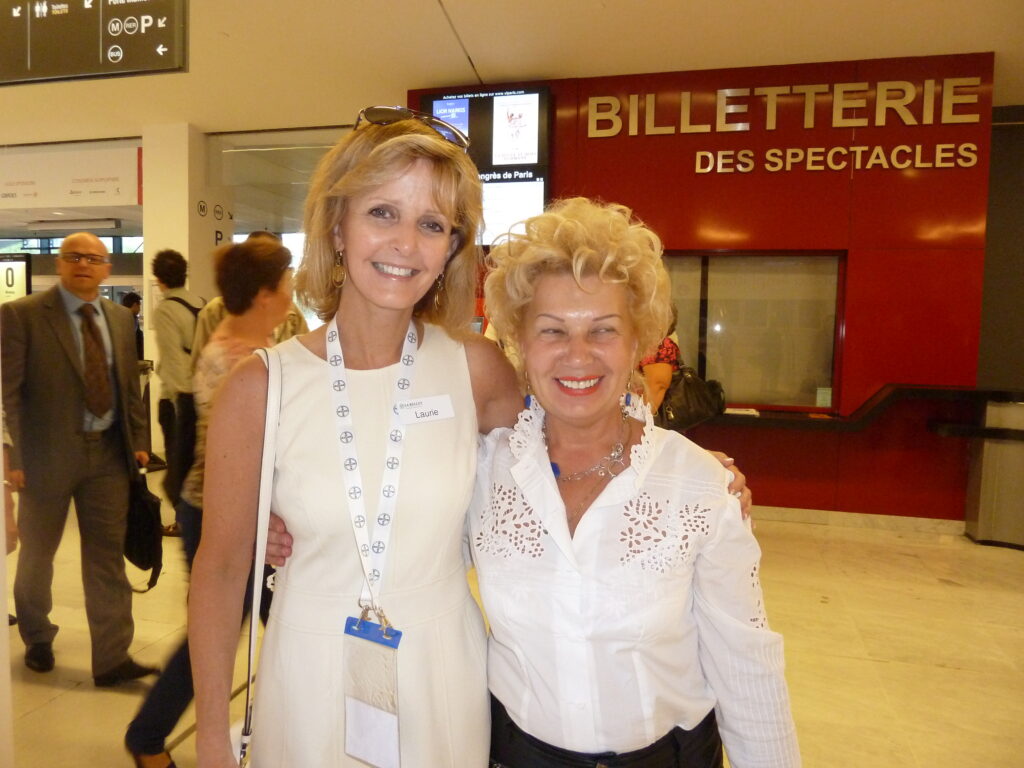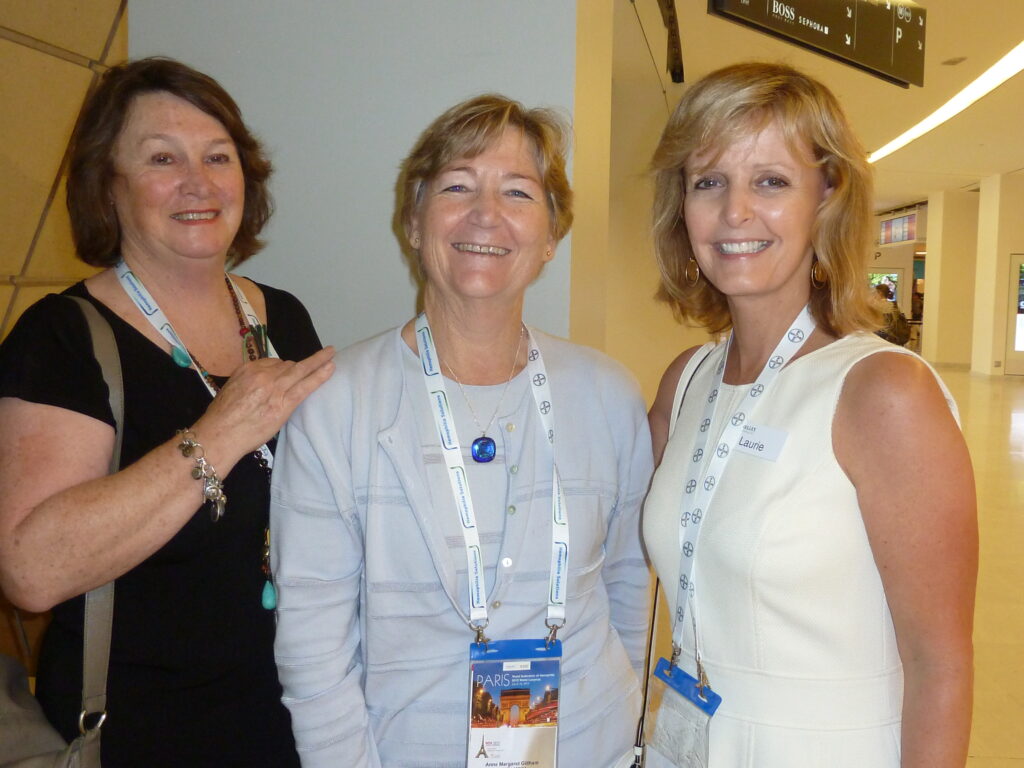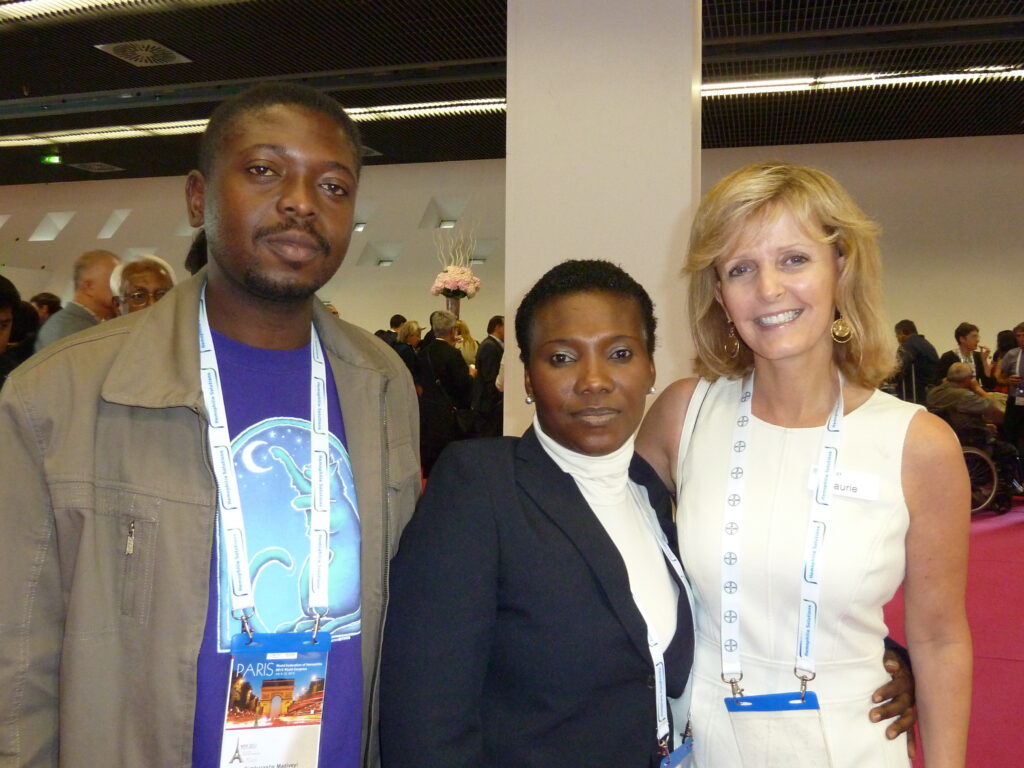
I’m in a soggy Paris (not complaining though!), attending the wonderful 50th anniversary of the World Federation of Hemophilia, taking place during its biannual Congress. The WFH, founded by American Frank Schnabel, is the premiere hemophilia nonprofit in the world, dedicated to improving the lives of those with hemophilia around the world, uniting those with hemophilia globally, and advancing access to care in developing countries. Today was the opening day, and a staggering, record-breaking 5,300 are in attendance from 130 countries! It’s a great opportunity for me to meet with our many country partners, who work with us to get factor to patients in developing countries.
I’ve been attending WFH meetings since 1996, and attend every two years. It’s a great chance to learn more about WFH efforts, to meet up with those we serve, and to make new acquaintances. Right away I bumped into Dr. Tatiana Andreeva, a pediatric hematologist from St. Petersburg whom I’ve known since 1998. She even visited my home once!
The incomparable Jill Smith, RN from Australia—who traveled with me once to Zimbabwe for a week to do an assessment of hemophilia care there (and shared a tent with me on safari!)—and incredible Anne Gillham, RN from South Africa, who has been a vital source of training and support for so many countries in Africa besides her own.

(South Africa), Laurie Kelley
The opening ceremony was excellent. Mark Skinner, past president of NHF and who has been president of WFH for 8 years now, gave an insightful talk about the accomplishments of WFH in helping advance care. But never have I seen the WFH so intensely focused on developing countries. This made my heart sing, for it’s been my mission and desire since 1996, that we do not forget those at the bottom of the wait list, the ones whose government does not provide funding for treatment. A very touching and powerful movie was shown about how WFH has worked in Senegal to improve care, and I was pleasantly surprised to see that producer Marilyn Ness had created it! It was beautiful, so well done. I’ve been to Africa many times and have traveled those same dusty roads, been in the same hospitals with paint-peeled iron beds, no AC, suffering patients. Marilyn captured the feel of hemophilia care in Africa well.
The WFH is now making a serious push to “Close the Gap” with a new campaign, designed to raise $5 million to help create programs to reach the impoverished countries where care is lacking. We still have four more days of the Congress, and already the tone has been set: we must act now to help save the lives of those without treatment. It’s what we’ve been focusing on at Save One life, my nonprofit, and I applaud WFH for putting the spotlight on developing countries as it moves forward, and asking everyone to join in.
After the ceremony, we all moved into the exhibit area and visited the various booths by the pharmaceutical companies. There we met even more colleagues and friends. I was thrilled to meet up with my friends from Africa, especially Megan Adediran, president of the Nigerian Haemophilia Foundation, who just published a new book about her experiences with hemophilia, called A Light at the End of the Tunnel.
More to come!



1 thought on “The Time Has Come: Help Developing Countries Now”
This is so exciting! Wish I was there. What a wonderful campaign!!